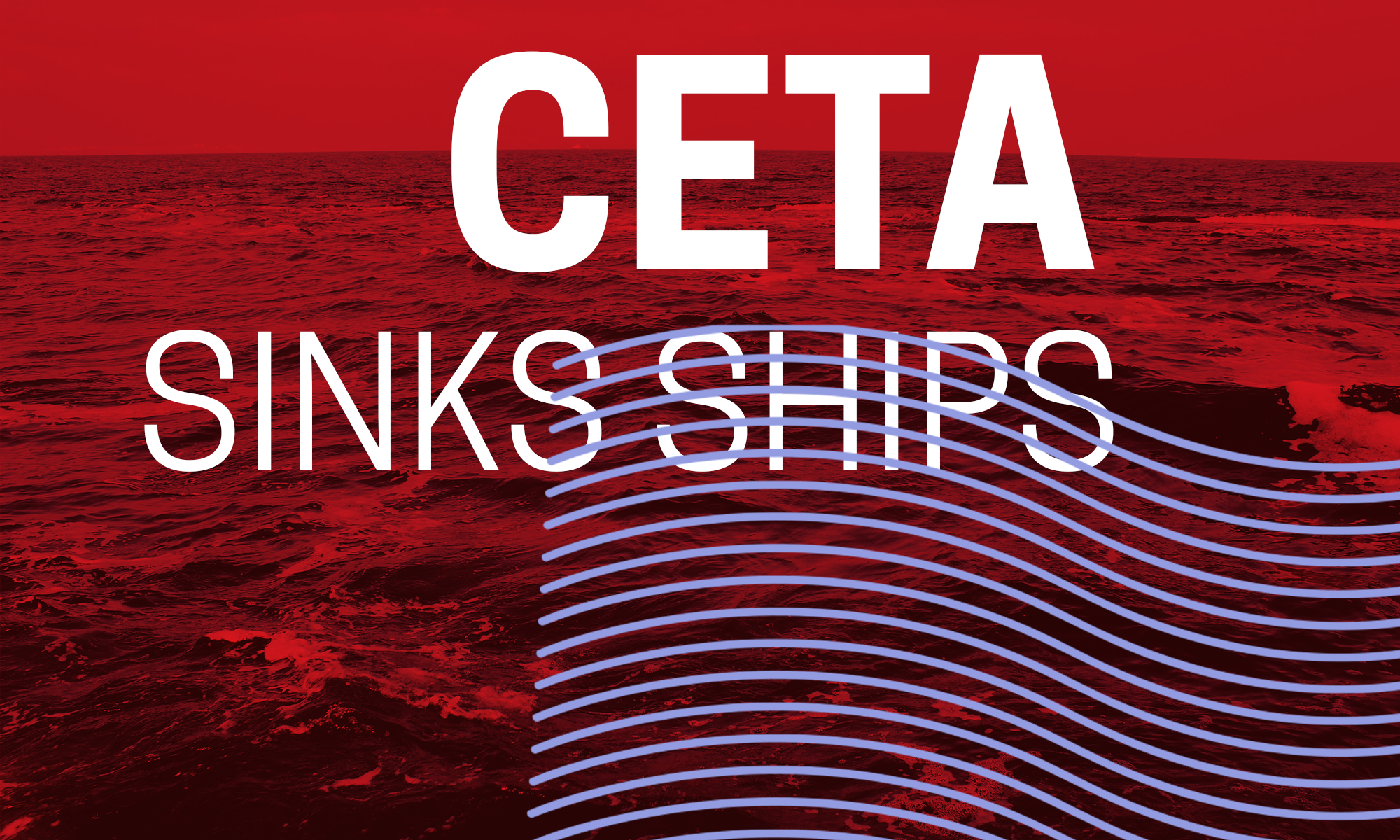07/08/2017
Having had the pleasure of hearing you testify before the Senate-Committee on Foreign Affairs and International Trade, Enquiring into Bill C-30, on Thursday, 6/4/17, I wish to share some remarks concerning CETA’s Maritime Provisions which may alleviate some of the concerns you expressed before the Committee.
I’m a Canadian seafarer who, thanks to our ship discharging at the Government dock on Esplanade or, later, at the terminal below the King street convenience store, has been to Sydney many times over the years and benefited from the cities’ many advantages, one of which was the bookstore (formerly on Charlotte street) and another, seeing the final screening at the Vogue Theatre, showing, appropriately enough, “The Last Picture Show”.
As shown in the attachment below, I had been invited to appear before the Senate-Committee on Thursday, 13/5/17, to testify of CETA’s effects on the ships and sailors of the Canadian Merchant Marine. Here’s what I discovered in relation to your concerns:
As indicated in Senator Woo’s final question to you and the Shipping Federation of Canada, it seems to be general knowledge, as stated by Chief Canadian CETA negotiator Steve Verheul on 30/3/17 (in answering Senate-Committee Chair A.Raynelle Andreychuk), that:
“It’s always easy to further liberalize a Trade Agreement. That’s not usually a problem to negotiate, amend or just do it in practise.”
As Counsellor Dingwall, who testified along with you, may have been aware, Canada’s lead CETA negotiator was perhaps referring to Article 3.2, in Chapter 14 of CETA (International Maritime Transport), which extends Maritime Cabotage Rights to European registered vessels to all of Canada’s ports.
These Rights are only temporarily suspended by Reservation II-C-14 (pages 1209 and 1210), with the exception of the Halifax-Montreal Corridor and a few others (concerning dredging and the Transport of empty containers): To the casual observer it would appear that CETA’s Maritime Provisions grant Maritime Cabotage Rights only between those two ports to European registered ships.
However, it is the legal nature of Reservations in International Treaties that, being included at the behest of a single party and having been approved, they can otherwise be revoked without the consent of other parties.
Therefore, it would only require the unilateral withdrawal of the Reservation (without any further need of assent from the Parliament of Canada) to restore the Maritime Cabotage Rights to all ports in Canada granted to European Interests in CETA’s International Maritime Transport Chapter.
This could occur anytime after CETA begins Provisional Implementation on 21/9/17 (or, indeed, before.).
The exemptions granted to European shipowners in Bill C-30 from paying their (Flag of Convenience, mostly non-European) seafarers median Canadian wages in the Halifax-Montreal Corridor (Clause 92, sections 2.3 and 2.4) could then be easily amended to include Sydney and/or any other port inCanada, on the Atlantic coast or elsewhere, as those most directly affected by the Legislation, namely Canada’s thousands of seafarers, will likely be too busy trying to cope with the lowered wage and working conditions engendered by CETA or seeking alternate means of employment, than to draft any effective opposition.
A project as important as the Sydney Mega-Hub Cargo Terminal would not have been left at risk by its’ sponsors.
I wish you all the best in your efforts for the ports’ projected development.
Sincerely,
Marc de Villers,
Wheelsman, M.V. Camilla Desgagnes”,
CDN63142X,
marcdevillers@icloud.com
514-404-6008.
